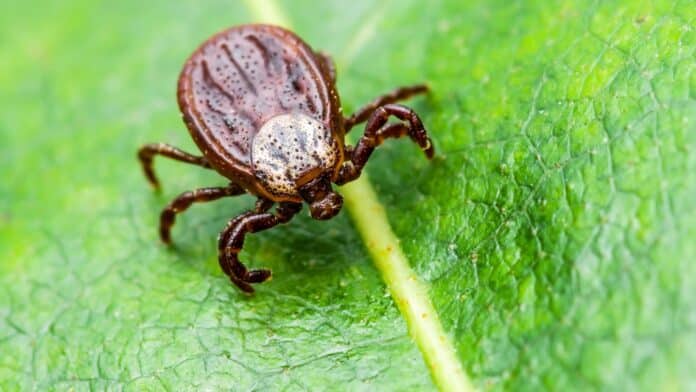Many individuals remain oblivious to the fact that autoimmune conditions, such as Lyme Disease and Epstein-Barr Virus (EBV), can be positively influenced by holistic therapeutic methods. Conventional medical treatments tend to focus primarily on symptom management.
However, holistic approaches such as Chinese medicine and homeopathy offer an alternative viewpoint, striving to reestablish equilibrium and concord within the body and addressing the underlying causes of autoimmune disorders.
Collaborating with a seasoned practitioner who possesses a deep understanding of these health hurdles can lead to profound improvements in one’s health. The potential of holistic therapies to fundamentally transform an individual’s life is immense, providing optimism and a comprehensive strategy to bolster overall well-being.
What Makes Lyme Disease and Epstein-Barr Virus (EBV) Challenging Infections for the Immune System?
Epstein-Barr Virus (EBV), a member of the herpesviruses family, can cause symptoms such as swollen glands, chronic fatigue, headaches, low-grade fever, and anxiety. It primarily spreads through bodily fluids, particularly saliva, blood, and semen. Similar to Lyme disease, the manifestation of symptoms varies based on immune strength, methylation status, and the specific EBV strain. Moreover, chronic EBV has been linked to several illnesses like fibromyalgia, autoimmune diseases, and even cancer. Thus, timely diagnosis and treatment can prevent these severe complications and improve overall health.
Lyme Disease and Epstein-Barr Virus (EBV) are two common infections that can pose significant challenges to the immune system. While they are caused by different microorganisms, they share many similarities in their manifestations and are often difficult to diagnose and treat. In this blog post, we will explore the similarities and differences between Lyme Disease and EBV, their symptoms, and how a holistic approach can complement traditional treatments.
Lyme Disease and EBV may have distinct characteristics as a bacterial/parasitic and viral infection, respectively, but they share several commonalities that pose challenges to the immune system. Both can hide in biofilms, have widespread prevalence, target organs like the liver and thyroid, lay dormant and resurface during times of stress, thrive in toxin-laden tissues, disrupt immune function, and impact the methylation cycle. The similarity in these characteristics implies that a person’s immune response to either infection can be similarly impacted. Therefore, it is critical to address these factors and support holistic immune function to counteract these infections adequately.
What Are the Various Symptoms and Transmission Methods of Lyme Disease?
Lyme disease stems from various strains of Borrelia, with Borrelia Burgdorferi being the most well-known, accompanied by over 100 other strains. Its symptoms can range from flu-like feelings and mood dysregulation to joint pain and cognitive decline. Transmission occurs through pests, pets, people, and even during pregnancy. The severity of symptoms depends on the individual’s immune system strength, methylation status, and the specific strain contracted. Tick prevention and prompt treatment can effectively reduce the risk and spread of Lyme disease.
What Natural Solutions Can Help Address Lyme and EBV Infections?
If you’re seeking a natural approach to tackle Lyme and EBV infections, there are several strategies that can be employed. A holistic approach involves utilizing a combination of enzymes, herbs, amino acids, minerals, vitamins, nosodes, and DesBio’s Smart Silver to address these conditions effectively.
To initiate the protocol, starting with DesBio’s Comprehensive Detox Kit can help alleviate symptoms associated with blocked drainage pathways in the body. Following this, the SSR protocol can be implemented to temporarily relieve symptoms related to EBV or Lyme.
It’s important to address biofilms, which can be achieved through the use of enzymes or Smart Silver. Prioritizing mitochondrial health is also crucial, and the Replenish protocol can provide methylation support for this purpose.
Boosting energy reserves by increasing trace minerals like copper, cobalt, and manganese can be beneficial. Additionally, products like Energize, Elevate, or Anxious from DesBio can help temporarily relieve associated emotional symptoms.
Supporting the healing process further involves incorporating binders for metabolic waste and pathogen byproducts such as ToxAffix. Herbal support using ContraVirus and PathoGuard can also aid in the recovery journey.
How Can Holistic and Complementary Approaches Enhance the Management of Lyme Disease and EBV Infections?
Holistic and complementary approaches can play a vital role in managing these infections. Simple lifestyle changes such as proper sleep hygiene, stress reduction, and nutrient-dense diets that support the immune system can be highly beneficial for both Lyme and EBV patients. For example, a high-quality probiotic supplement and natural antimicrobial herbs can help kill off biofilms and harmful microorganisms associated with Lyme disease. Detoxifying the body through detox baths and infrared saunas can promote the elimination of toxins, which often accumulate in chronically ill individuals.
Lyme Disease and Epstein-Barr Virus (EBV) are two challenging infections that are prevalent in many communities. While they are caused by different microorganisms, they share many similarities in their manifestations, including the ability to disrupt immune function and impact important biological processes. Understanding these similarities and differences is critical in helping manage Lyme and EBV infections. Holistic approaches that complement traditional treatments can help restore overall health by promoting immune system function, reducing stress, and improving overall well-being. With prompt diagnosis and treatment, people with Lyme disease and EBV can achieve full recovery and lead healthy, happy lives.


